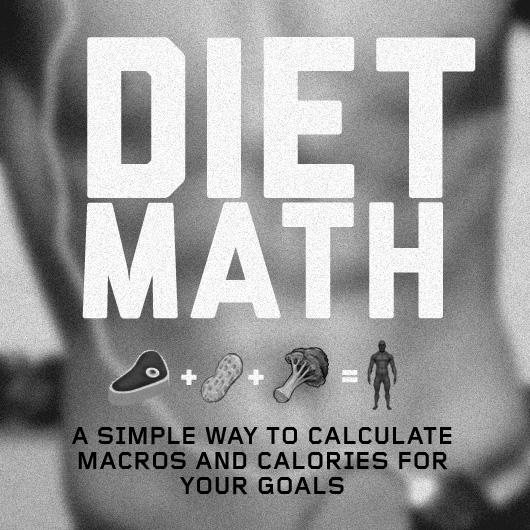Everyone has their own specific goals when it comes to fitness/muscle-building whether it’s losing fat, gaining muscle or just maintaining for performance or anything in between. Need a simple way to calculate your needs?
It’s no secret that diet plays a huge role in which direction you head and how successful you become. As one of the most talked-about and debated subjects, diet (or more simply, your eating plan) can be an incredibly confusing topic to research regarding the countless resources, outlets and (let’s not leave out) opinions of so many “experts” out there on the interwebs!
Disclaimer: I will most likely get some “interesting” comments and emails about this post. It seems so many out there have strong, passionate opinions about diet. This is a combination of research that I have done AND what has worked for not only me but many of those I have worked with over the years.
I am a huge fan of keeping things simple for several reasons.
- Keeping it simple and easily understandable is essential for real-world people who don’t have time to keep a detailed eye on eating specific foods at specific times on specific days for specific periods of time.
- Building muscle, losing fat or anything in between isn’t rocket science. Yes, there is a lot of research out there but applying simple principles for real-world results can sometimes turn science on its head. New research even trumps old research many times often validating what was thought of from experiments in the gym to begin with.
- Over thinking things especially when it comes to training and diet can stress out even the most dedicated trainer. Keeping it simple is a way to let whatever program you are on to work (or not) so you can gradually see what direction you are headed then make adjustments if needed.
So, enough jibber jabber and let’s get to some simple diet math.
The numbers and formulas (don’t worry, they are easy) are only to get you started on the right path. Adjustments for macro nutrients can be made once you start as everyone has different metabolisms, lifestyles, schedules, etc.
Protein (4 calories per gram)
Protein intake will stay consistent according to your bodyweight. Take in one gram per pound of desired bodyweight per day. Desired meaning if you weigh 200 lbs and want to be 180, your intake will be 180 grams per day.
Conversely if you are 180 and want to weigh 200, it will be 200.
Fat (9 calories per gram)
Healthy fats will also stay consistent at .5 grams per pound of desired bodyweight. So for our example above a 180 lb individual that wants to be 200 will take in 100 grams of (healthy) fat per day.
Carbohydrate (4 calories per gram)
Here is where we will make some adjustments. Again, these are not hard and fast numbers. Adjustments can and most likely will be made down the road.
For fat loss: 1 gram of carbohydrate per pound of desired bodyweight.
For maintenance: 2 grams of carbohydrate per pound of desired bodyweight.
For muscle gain: 3 grams of carbohydrate per pound of desired bodyweight.
***
These calories can be split into 3, 4 or 5 meals per day. Don’t make things overcomplicated – keep it simple. Stay on track with the plan for 4-6 weeks and see where your physique is heading. Make adjustments after you have assessed things.
Make sure the carb sources are complex in nature such as rice, potatoes, oats and plenty of vegetables and a few fruits.
Let’s look at an example
A 200 pound individual wants to be 180 pounds.
Protein = 180 grams (x 4 = 720 calories)
Fats = 90 grams (x 9 = 810 calories)
Carbs = 180 grams (x 4 = 720 calories)
Total calories = 2250
Note: Be sure to weigh yourself every few weeks to make adjustments to these numbers. One week you may be 200 and in a few weeks you may be 195 so the numbers will change regarding proteins, fats and carbs. Also, make sure you are following a sound training plan.












![It’s Time to Begin Again: 3 Uncomfortable Frameworks That Will Make Your New Year More Meaningful [Audio Essay + Article]](https://www.primermagazine.com/wp-content/uploads/2025/01/begin_again_feature.jpg)



